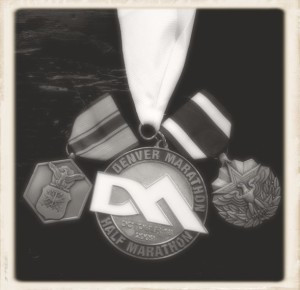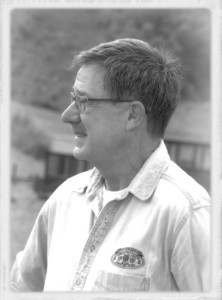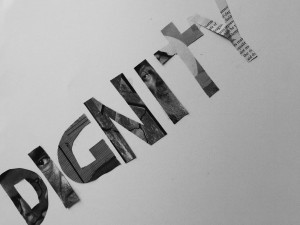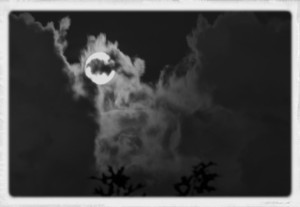Phil Miller's Blog, page 2
November 29, 2015
Time to Talk About It
Thank you to members of Cherry Log Christian Church who have purchased copies of From the Lives We Knew. I enjoyed signing books on November 29th.
On Sundays, December 6th, 13th, and 20th, I’ll guide a discussion of  three themes in the book—“Fear Versus Friendship,” “Home,” and “Resilience.” On December 6th, Marshall Burke will take part in the conversation to help us understand how people overcome fear and distrust to become friends. His 20 years of global humanitarian experience will add a valued component to our conversation.
three themes in the book—“Fear Versus Friendship,” “Home,” and “Resilience.” On December 6th, Marshall Burke will take part in the conversation to help us understand how people overcome fear and distrust to become friends. His 20 years of global humanitarian experience will add a valued component to our conversation.
The Seekers Class at Cherry Log Christian is sponsoring these discussions, which are open to any interested reader. The class has chosen my book as a way to consider the compelling issues of refugees and immigration.
By the way, have you ordered From the Lives We Knew as a Christmas present for someone you love?
October 28, 2015
Paperbacks and e-books
A friend who has been reading From the Lives We Knew called this week. “The characters feel so real!” she exclaimed. “And I love the book itself, the feel of it, the soft matte texture of the cover, the size of the pages and fonts. I’m hard on books, but this one holds up.”
Which sort of reader are you — turn-the-paper-pages or swipe-across-the-screen? Oh, dear—audible, you say? Afraid I can’t do much for you, at least not yet!
As for me, I’m a paper book reader.
For one thing, I don’t have a pad-size device. I alternate between an iPhone and a Windows laptop. Once in a while, when a friend asks me for feedback on a draft, I’ll use one or the other of these rather than printing out the manuscript. However, I wouldn’t want to read the whole book that way.
One of the risks when reading with my iPhone is the temptation to multitask, to skip back and forth between email, Facebook, Twitter, and other Internet files. I’m much less likely to do that when I settle down with a paper book in my hands.
Moreover, I like the sensation of progress as I see the thickness of the pages in my left hand thin down while the pages in my right hand stack up. My favorite time to read is after I lie down in bed. I read until I feel sleepy, and then I slip the bookmark between the pages and set the book on the table before I turn off the lamp.
I took an elective course during Air War College. The topic was the proliferation or non-proliferation of weapons of mass destruction. The instructors said to read everything online. The amount of material was massive, far too voluminous to print at home. Besides, I was expected to speed-read through it all sufficiently to pass an exam proving my familiarity with the readings. I didn’t even have a laptop back then, much less an iPhone. I sat upright at a desktop computer scrolling page after page after page for a few weeks. After that, the reading large amounts of material on a computer screen lost any appeal it might otherwise have had.
My wife, on the other hand, has an iPad, which she used to proofread From the Lives We Knew. I gave her periodic revised versions in PDF format, and she told me the page number of any part needing further attention. She’s a whiz at reading e-books although her favorite method of reading is with ear buds.
My blog uses an online medium, of course, and I appreciate certain advantages of digital print, such as saving paper.
From the Lives We Knew is now available as a Kindle e-book for cheap. You can preview it that way, if you wish, but I hope you’ll consider the paper version, too.
September 8, 2015
Friends for 55 Years
Seven months ago, when I started writing From the Lives We Knew, I was as unaware as anyone that the news was pregnant with refugee stories. The crisis of Syrian multitudes washing into Europe had not yet made headlines. It certainly wasn’t a big topic for users of Facebook, Twitter, or LinkedIn.
My interest in these people grew from personal friendships with three families—one from Jordan, one from Kosovo, and one from Iraq.
The earliest of these was with a man whose life gave me the ideas for the first ten stories. He and I are about the same age. We got acquainted through letter-writing long, long before e-mail or Facebook came on the scene. I remember the light-blue, onion-skin aerogram (par avion) forms. The stationery and envelope were a single piece that could be mailed less expensively. His address was in Jordan.
A few times, we splurged to send photographs in an envelope and wrote our letters on notebook paper. I still have some of the pictures he sent.
Thirty years after our friendship began, after being completely out of touch for over 20 years, we met. While my book isn’t autobiographical, readers will have access to the mind-blowing circumstances that made our meeting possible.
The reason we had lost touch is spelled out in my book, too. When I tell this story to friends, I have to explain a few things. For example, my friend’s home was in the area known as the West Bank (the west side of the Jordan River), which was part of the Hashemite Kingdom of Jordan at that time. By the time we lost touch, my friend‘s home was in an area occupied by the State of Israel. Personally, he was still in Jordan except he had, unfortunately, crossed over to the east side of the Jordan, where Amman is located. When Israel occupied the West Bank, he could no longer go home.
For 27 years, he couldn’t go back across the Jordan River to see his family.
By the time the crossing point was re-established, he was a middle-aged man. When I saw him face-to-face, he still had not been permitted to go back to his hometown.
My personal friendship with this man made me aware, first, of the existence of Palestinians, particularly those living in or near Bethlehem in the West Bank. In many towns, the majority of these are Christians—Orthodox, Catholic, Lutheran, Mennonite, and other denominations. My friend is Lutheran.
Second, I became aware of the thousands of Palestinians who became refugees when the State of Israel came into existence in 1948, and the thousands more who became refugees at the time of the Six-Day War of 1967, which was when my friend got “stuck” on the east side of the river.
I hope my readers will find, through the characters in my book, that refugees are not anonymous faces in a sensational news story, but real people, who can be our friends.
August 31, 2015
Why I Wrote From the Lives We Knew
Sooner or later, someone will ask me why I wrote From the Lives We Knew.
My first answer to this question is found in the words I posted here a while back:
“I received an unexpected message about a family I had worked with many years ago when they were refugees. Soon we were in touch with each other. The reconnection ignited my passion for refugees, immigrants, asylum-seekers, and all whose lives are uprooted by war or other catastrophes.”
I didn’t set out to react to events such as the story from August 27, 2015, about the 70 migrants found dead in an Austrian truck, or the other story from that day about two boats capsizing off the coast of Libya. It wasn’t my purpose to sensationalize the tens of thousands of refugees fleeing their war-torn homelands in search of safety. And no, I wasn’t thinking about the political ramifications of immigration and refugee resettlement.
However, as I wait for the printing and release of From the Lives We Knew, I feel excited because of its bearing on such catastrophes. In a small, personal way, I hope my book puts a face on the strangers who long for acts of hospitality.
The back of the book cover gives another answer to the question of why I wrote it: “Readers of this book will feel a closer connection to those whose lives are impacted by international and intercultural conflict.”
The preface of my book includes two paragraphs about this “closer connection”:
Fiction writers usually say something on the order of, “Any resemblance between characters in this book and real live people is purely coincidental and accidental.” Even imagination, however, is built on memories. I’ve changed the names and personalities of the friends who gave me the ideas for these characters. I’ve woven events that never happened into factual reports and subjective reminiscences. I hope the stories and characters ring true. If you think you recognize someone in these pages, however, you’re surely mistaken!
Having made my disclaimer, let me express profound gratitude to those who will remain anonymous, whose permission I never sought, yet without whom these stories could not have been written, and for whose sake they were.
Despite my disclaimer, the characters and the stories they tell in From the Lives We Knew are based on real, live human beings — my personal friends. Because of them, I can’t read about 70 people dying in a truck or 150 people drowning while trying to leave the lives they knew for something better without thinking, “These were mothers and children, fathers and sisters and brothers, possibly nurses, teachers, farmers, cooks, and artists. These were people with names and stories and something to offer all of us. They couldn’t go back home if they had lived.” How many more who can’t go home want me to share my life with them? How much better to see them as friends than as a threat!
August 24, 2015
Number 9: They’re All Quite Plucky
If you hear me using an unusual word, there’s a reason, which comes from these thoughts about the ninth attribute in the list of virtues of the characters in my upcoming book.
Before I get to what might be odd about this, let me cite some specific instances.
An American woman goes to the school where her immigrant friend’s child is a student and confronts the administrators for failing to prevent the bullying this child has suffered.
That child’s mother has previously protected him and his older sisters from their abusive father and has leapt from a fast-moving SUV to flee for her life across a barren desert.
A grandmother incurs a brain injury during a brutal assault but shields her daughter-in-law and little grandchildren from invaders.
Her husband musters up the courage to lead the family home, to rebuild from the ashes of a community and a country heavily damaged by war.
A Palestinian couple, displaced from their hometowns and families, stand up for nonviolent resistance to oppression year after year, decade after decade, throughout their adult lives.
Stories like those told by the characters in From the Lives We Knew may be the best approach to understanding what courage is.
Our household dictionary says the root of the word courage, beneath layers of Middle English, Old French, and Vulgar Latin, is the word for “heart.” Nowadays, people “heart” a place to show affection for it, thanks to clever public relations by New York City some years back. But the phrase “take heart” preceded that meaning. Take heart . . . have courage . . . be brave.
Bravery, in our dictionary, has several synonyms ranging from wild (barbarous) to excellent (bravo) with fearlessness somewhere near the middle.
The word courageous implies consciously drawing on a reserve of inner strength, which is what the mother mentioned above did.
The word fearlessness emphasizes steadfast self-possession, the capacity to rise above one’s fear, which is what the grandfather did in leading his family back to the ruins of their homeland.
The word valiant suggests the particular bravery of a hero or heroine, such as the grandmother who risked her life to protect her grandsons and their mother.
Choosing the most precise word often presents surprising challenges. A writer may choose a word for its rhythm in a paragraph or its tone in the context of the story, rather than its most commonly accepted usage. The dissimilarity of the writer’s and reader’s backgrounds may result in quite different understandings of a word. The most precise word that generally describes the characters in From the Lives We Knew is a word outside my normal vocabulary.
Plucky, according to our dictionary, has the connotation of “showing heart and spirit in the face of unfavorable odds.”
Shoot, I should have discovered this unusual word before I finished writing. By the way, I expect From the Lives We Knew will be ready for you by mid-October. I’m anxious to hear your response to it.
August 17, 2015
Achievement is Reason Number Eight
Early in our lives, some of us got the idea that becoming a worthwhile person is a product of developing our talents and working hard to reach goals that earn praise and positive attention. As a child, I relished the recognition I could win by performing well, whether in music or sports or academics.
Later, however, I grew wary of anyone whose motivation or appeal was based on “success,” not because I thought failure was preferable, but because I disagreed with the ways many people defined success. To me, success didn’t mean wearing designer fashions or driving a flashy car. It couldn’t be measured in dollars or popularity.
Somehow, I grasped that no matter how broadly you define it, success is not the ultimate key to a worthwhile life.
Therefore, early in my experience as an Air Force chaplain, I  designed a seminar with the title, “You Don’t Have to Prove Yourself.” I meant to counter-balance the culture within the military, where everyone stands on a pyramid, climbing higher, assuming more responsibility, and gathering greater rewards according to their accomplishments. Granted, I lived within that culture and was “successful” in it, but I wanted to assure the handful of attendees that our worth as human beings isn’t measured by the standards the military and other institutions use.
designed a seminar with the title, “You Don’t Have to Prove Yourself.” I meant to counter-balance the culture within the military, where everyone stands on a pyramid, climbing higher, assuming more responsibility, and gathering greater rewards according to their accomplishments. Granted, I lived within that culture and was “successful” in it, but I wanted to assure the handful of attendees that our worth as human beings isn’t measured by the standards the military and other institutions use.
When I launched this series of posts, I predicted it would give “nine reasons for reading my book, for caring about the issues found in these stories, and for joining me in this passion.” The following week, in the guise of a make-believe school teacher, I listed nine “virtues of the main characters.” These weren’t attributes I had in mind when writing the stories, but developing these posts has helped me get better acquainted with the people in my book than I was when I wrote about them.
The eighth topic in the imaginary teacher’s list is achievement.
As I reflect on the main characters in From the Lives We Knew, I don’t want to convey the impression that the most worthy among them are those who were efficient in reaching their goals. Instead, I would encourage you, as you come to know these characters, to consider how the drive for success (or the fear of failure) motivates them.
For instance, the young narrator describing members of his family in Kosovo says this about his grandfather:
One key to Grandfather’s success was his intense fear of failure. In the eyes of others, he was the master of all trades. They never saw his secret midnight study sessions. He stayed up late to re-read instructions he had long since memorized because he didn’t trust his memory. He fretted about inspections and accidents. He worried about unreliable underlings and envious deputies. Yet he hid his anxieties and kept up the appearance of self-assurance.
The need to avoid failure is the shadow cast by a success-driven life. Grandfather’s real success wasn’t mastering all trades or winning promotions; it was his resilience after losing his pension.
August 10, 2015
Mercy is Number Seven
Last week, I enjoyed a conversation with my friend Marshall Burke, Ph.D. For 20 years, he worked with CARE International (the acronym originally stood for Cooperative for Assistance and Relief Everywhere). He introduced CARE’s HIV and Women’s Health Program in Latin America and Africa. Marshall’s job was to help individuals and families in the poorest communities in the world.
Truly, to know Marshall is to come into contact with mercy.
Marshall’s career took him to horrific, pitiable scenes on several continents as he administered humanitarian aid. He spoke of setting up a refugee camp in Macedonia. I’m pretty sure we were talking  about Radusa, a camp described (though not named) in the second section of my book, From the Lives We Knew, the part which features characters from Kosovo who become refugees in Macedonia. Marshall described some of the illnesses and injuries refugees brought to the camp. When I told him about the Norwegian art therapist working with little Albanian Kosovar boys in one of my stories, Marshall said he saw remarkable results from such activities.
about Radusa, a camp described (though not named) in the second section of my book, From the Lives We Knew, the part which features characters from Kosovo who become refugees in Macedonia. Marshall described some of the illnesses and injuries refugees brought to the camp. When I told him about the Norwegian art therapist working with little Albanian Kosovar boys in one of my stories, Marshall said he saw remarkable results from such activities.
Once again, we hear the mantra of the Beatitudes: “Blessed are the merciful, for they will receive mercy.”
For many people, health care is the first thought associated with the word mercy. In the list of nine virtues found among characters of my upcoming book, the seventh is mercy. “By” and “to” are the working prepositions.
When is mercy shown by someone in a story? When is it shown to someone?
Both the “by” and “to” aspects of health care play an important role in refugee stories. For example, a Palestinian nurse goes far beyond the requirements of her duty to show mercy to a man with serious injuries. She restores his soul and his strength. An Iraqi doctor devotes himself to other refugees and disciplines himself to obtain the qualifications to spend his life showing mercy to others.
In the fourth section of the book, two Americans endeavor to show mercy to the refugees whose stories are told in the previous three parts. They try, which is not the same as saying they’re always effective or successful.
It’s one thing to feel sorry for someone, and something else to be truly helpful.
Also, there’s a difference between giving people hope that you can help them, and living up to their expectations. We may want to show mercy yet find ourselves unprepared for the complications and difficulties of doing so. Sometimes, showing mercy involves risking criticism or unexpected conflict. Often, being merciful calls for a costly, long-term commitment.
When have you shown or received mercy?
August 3, 2015
Reason Six is Righteousness
The first book I remember from childhood consisted of the Lord’s Prayer and the Beatitudes. I can still picture the color illustration of children hungering and thirsting for righteousness. Hunger and thirst we adults understand as a metaphor in Matthew’s gospel, but what’s the object of this desire?
What is righteousness? Who is righteous? Who yearns for righteousness?
(1) Is it the PRIG, who is critical and judgmental toward others? A self-righteous, holier-than-thou goody-two-shoes asking, “Why can’t you do things the right way?”
(2) Is it the PURIST, the self-critical stickler complaining, “Why can’t I ever get it quite right?”
(3) Is it the PROPONENT, the advocate or crusader for what, in his or her opinion, is right? The person who protests, “Keeping human
beings confined with barbed wire just isn’t right!”?
(4) Or is it the PRINCIPLED person who walks the walk, who practices what he or she preaches?
Although the higher the number on this list, the greater our respect for the person, righteousness can include all four of these aspects. Also, an individual may, depending on the situation, manifest any of these types of behavior.
Andrew Basden (“Writings on Christian Topics,” www.abxn.org) says:
We tend to think of “justice” as something public, and often think of it as retribution. When we say “I want justice”, we often mean “I want my rights (often from another, or for the legal system to give us redress)”. On the other hand, we tend to think of “righteousness”, if we think of it at all, as a property of an individual (e.g. the old singing group ‘The Righteous Brothers’), and usually of the private sphere.
But, in the Bible they are the same word, both in the Old Testament and the New Testament. One Hebrew and one Greek word is used for both, and seldom translated into any other word.
We wrongly confine righteousness to personal morality and justice to retribution. The same writer defines righteousness/justice as “right relationships among all things in the created order of things.”
In creating the stories and characters in From the Lives We Knew (which felt more like receiving and transmitting them), I wasn’t conscious of a concept like righteousness. As I prepare to share them with you, however, I find it intriguing to look at the main characters and ask whether and how each one desires right relationships among all things.
Two or three main characters advocate non-violence, autonomy, and freedom from oppression. When these people are judgmental, they direct their criticism toward tyrants rather than toward each other. I think they all show honesty and integrity; however, characters that didn’t make this list are dishonest.
Well, tell me after you read From the Lives We Knew, okay? I have a hunch you’ll view the characters differently from me, and I’d love to get your reaction.
July 27, 2015
Reason Five is Dignity
Nursing homes notoriously convey the opposite of dignity. Odors spread from patients’ rooms through the corridors. With advanced age and infirmity come losses of bladder and bowel control.
No show of hands but be honest. Have you ever wet your pants?
You may say I’m sharing too much information, but I’ll confess in order to make my point. While I have rarely thrown up, I have lost control in other ways more often than you’d like to know, and I can confirm that such moments have never advanced my sense of dignity.
Diarrhea, dysentery, and stress incontinence also affect characters in From the Lives We Knew, my upcoming book. If you pay attention, you’ll see recurrences of this embarrassing discomfort. I wasn’t aware of this fact until I reflected on where the virtue of dignity shows up in their stories.
By dignity, I do not mean the elevated status or rank of a “dignitary.” There may be some stuffy big shots in my stories, but not among the important characters. Also, although the characters go through some terrible experiences where it’s fitting for them to act solemn, I’m not using the word dignity to convey a grave or serious demeanor. Even the useful synonyms “poise” and “self-respect” can’t quite carry the fullness of the word “dignity.”
I think “awareness of one’s worth as a human being and of the worth of other human beings” gets closer.
War takes its toll on the characters. In war, most people are treated as less than human. People treat each other as less than human. People lose their connection to the place familiar to them. They are uprooted from the lives they knew. How can they maintain their dignity when they suffer such loss?
A young man with no resources puts up with diarrhea, a young woman running for her life wets her pants, a child regresses to bedwetting, and an old woman with a traumatic brain injury loses control of her bladder. They lose control, but have they lost their dignity altogether?
The stories of the characters in From the Lives We Knew aren’t about people who never lose their dignity, but they are about people who somehow recover their dignity. They are make-believe examples representing but a few of the millions of refugees. I hope my readers will develop a sympathetic friendship with these characters. And I hope this friendship results in a long-term interest in the human dignity of immigrants, refugees, and asylum seekers worldwide.
 Add “dignity” to the list of reasons to read and recommend From the Lives We Knew, a list which, so far, has also included “strength,” “distinctiveness,” “resourcefulness,” and “self-control,” attributes of the characters in the book’s stories.
Add “dignity” to the list of reasons to read and recommend From the Lives We Knew, a list which, so far, has also included “strength,” “distinctiveness,” “resourcefulness,” and “self-control,” attributes of the characters in the book’s stories.
July 20, 2015
Reason Four is Self-Control
In addition to strength, distinctiveness, and resourcefulness as reasons for reading From the Lives We Knew, I want to add the attribute self-control. By the phrase self-control, I mean restraint but not repression.
When you read From the Lives We Knew (as I hope you will) and come to a young man’s story about his family from Kosovo, I’d love to hear how you feel about his grandfather. Not merely in the chapter, “Grandfather’s Pension,” but throughout the ten pieces about this family, I see a man whose self-control is a key to his survival and his leadership in his family.
(Remember, once these characters evolved while I was writing my book, they became real to me, no longer my creations, but independent beings.)
In one scene, the grandfather’s son is strongly tempted to pursue a vendetta — tempted not merely by his own rage, but by an acquaintance, who pressures him to come on a manhunt. The grandfather recognizes how vendettas have crippled the culture of Kosovo. He has as much reason as anyone to feel enraged by an injury to his family, but he argues against giving in to the pursuit of vengeance, which will not help with the rebuilding of his homeland.
The people you’ll meet in this book endure disorganization, unpredictability, danger loss, pain, and filth. In such chaos, some people shut down. They withdraw mentally and emotionally, sometimes even physically. Others may not withdraw, but they break down with a tearful sense of helplessness. Still others lash out, with either violent language or physical force or both. A certain type of person, however, may rise up from the chaos and, with remarkable inner tranquility, lift up the faint-hearted and quiet the enraged.
This individual has a quality called self-possession.
You’ve heard of forgiving but not forgetting. The grandfather turns this upside down. His line of reasoning is pragmatic rather than idealistic. He scoffs at the notion of forgiving the ones who have hurt his loved ones. He’s willing, however, to leave whatever vengeance may come their way to the authorities, whether governmental or divine. By forgetting about what they have done, he has virtually forgiven them, too. He has dropped the burden of his anger and the distraction of settling the score.
In my book, the grandfather isn’t the only character who rises above the chaos with a centered outlook, but his example clearly illustrates the self-possession many of the refugees in these stories develop through their hard experiences. 
As I said, when the book becomes available, if you read it, I’ll appreciate hearing how you feel about any of the characters, and in this case, the grandfather in the family from Kosovo.



